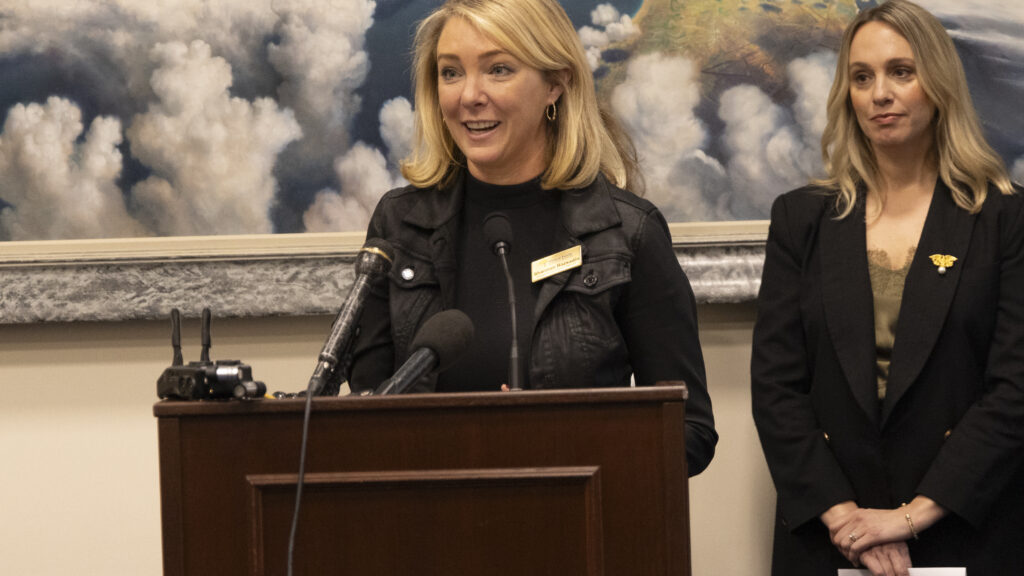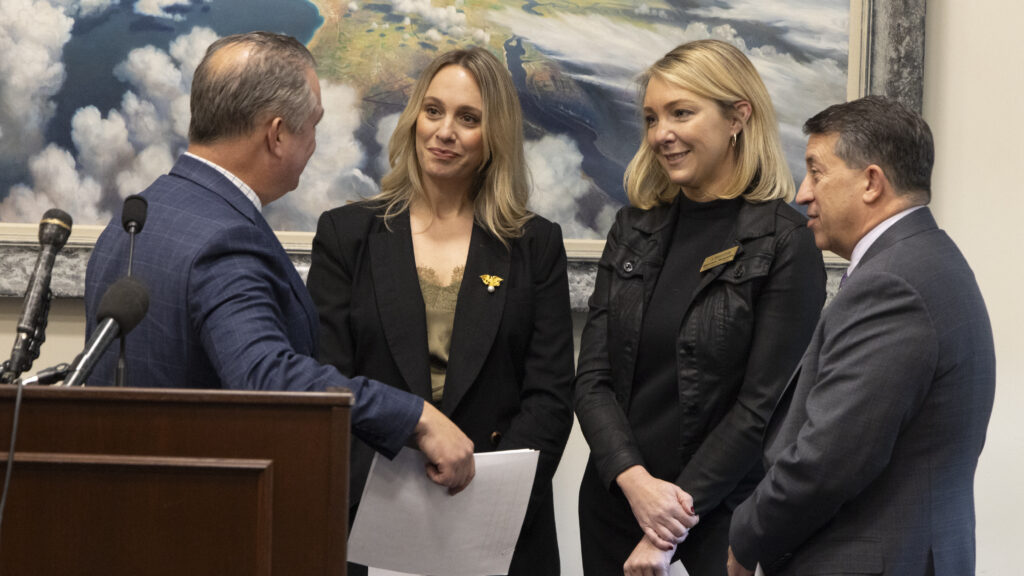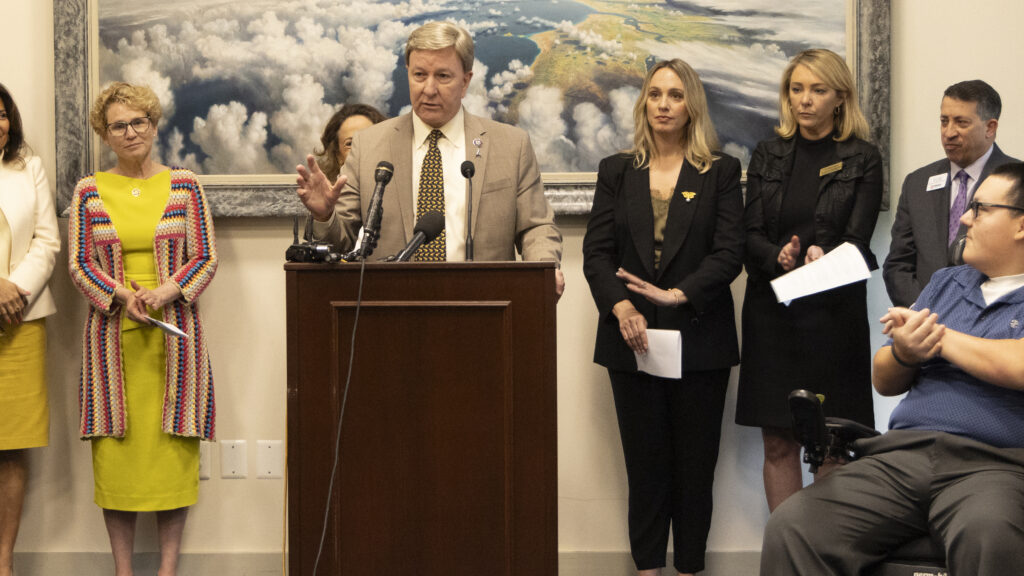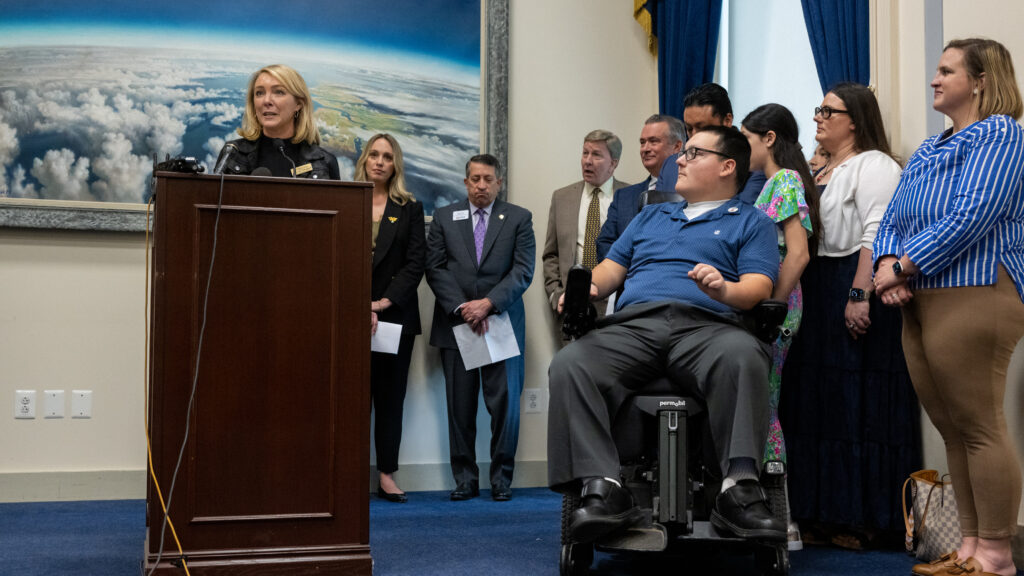Quality of Life Panel Unveils Final Report
April 11, 2024The House Armed Services Committee’s Quality of Life Panel released its highly anticipated report at a Capitol Hill press conference on April 11, 2024.
U.S. Representatives Don Bacon (R-NE) and Chrissy Houlahan (D-PA), Chairman and Ranking Member of the House Armed Services Committee’s Quality of Life Panel; U.S. Representatives Mike Rogers (R-AL) and Adam Smith (D-WA), Chairman and Ranking Member of the House Armed Services Committee; and bipartisan members of the Quality of Life Panel joined leaders from the Military Family Advisory Network, Blue Star Families, Military Officers Association of America, and National Military Family Association.
Following months of hearings, briefings, roundtables, and site visits, the congressional panel gathered insights on pay and compensation, child care, housing, access to health care, and spouse support programs. The report offers military personnel policy proposals to inform the Fiscal Year 2025 National Defense Authorization Act.
Quality of Life Panel Report
The full report and accompanying recommendations are based on the Panel’s assessment of what must be done to strengthen quality of life issues across the force. One pagers may be found HERE.
HASC Chairman Mike Rogers and Ranking Member Adam Smith have also introduced the Service Member Quality of Life Improvement Act, which will serve as the base text for the FY25 NDAA. Read the bill text and download social media graphics HERE.
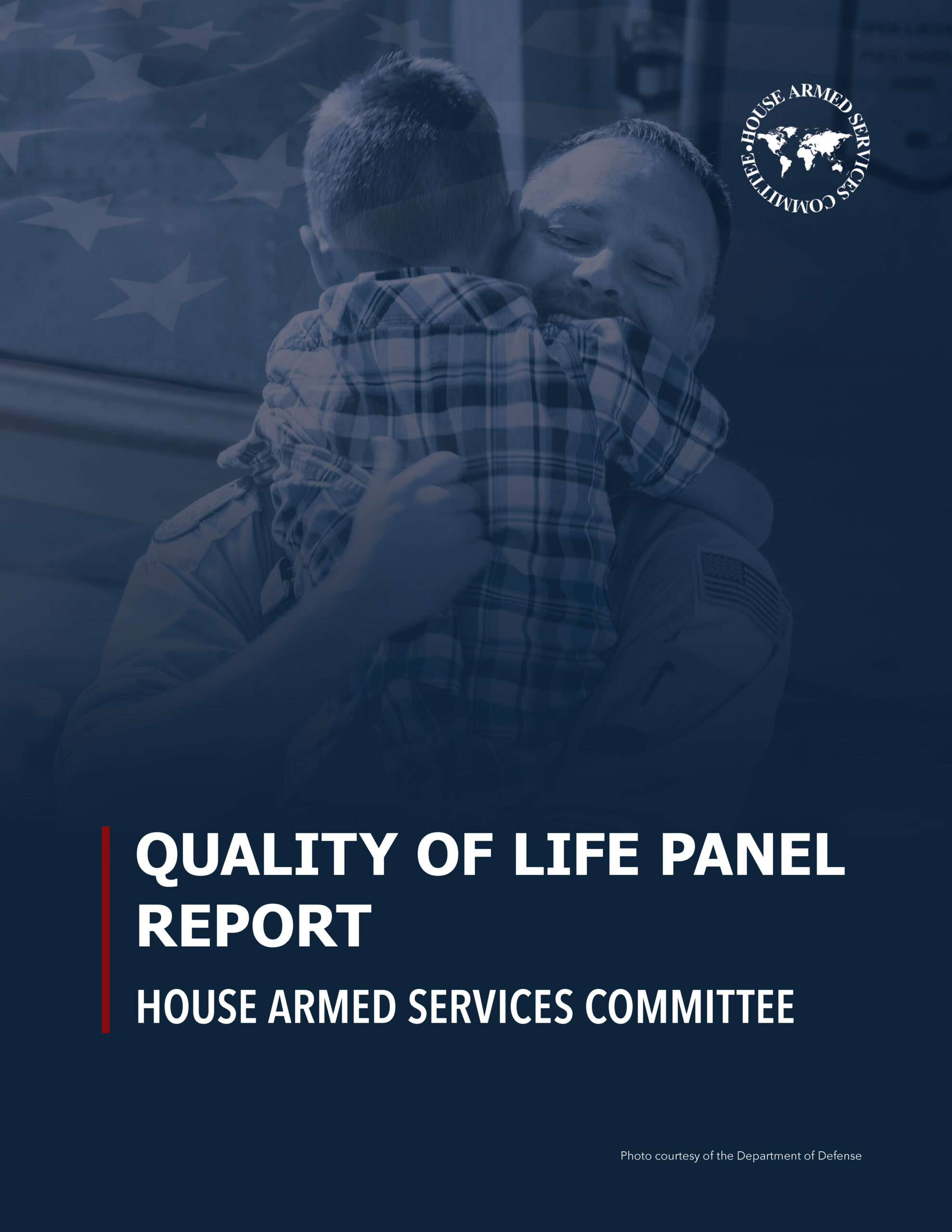
Over the past year, MFAN has worked closely with Members of Congress, committee and panel staff, and advocates since the group was stood up in summer 2023, sharing research, subject matter expertise, and ground truths from our military family network. MFAN commends the panel’s efforts to taking action that will positively impact our nation’s service members and their families.
At the press conference, MFAN Chief Executive Officer Shannon Razsadin delivered the following remarks:
“Good afternoon. My name is Shannon Razsadin. I am the CEO of the Military Family Advisory Network, or MFAN. On behalf of our entire network, I want to express our gratitude to the House Armed Services Committee and the Quality of Life Panel Members and staff who worked tirelessly to understand challenges and design solutions that will have a tangible impact on lives.
Our military is great because of its people, and our people are a microcosm of America. Military families feel the instability of the economy, the aftermath of the pandemic, and the childcare availability crisis. These challenges – coupled with nuances like frequent moves, separation from support networks, and gaps in spouse employment – have real-life consequences. Research data from MFAN and others paint a clear picture: the expectation of force readiness when a family is grappling with stressors like buying food or paying rent is unsustainable.
This report is a clear step toward actions that service members and their families will feel in their daily lives. The panel’s efforts complement the work of the Department of Defense’s Taking Care of People initiative and further reinforce the notion that military families are seen and appreciated.
I am sure I can speak for my colleagues here today and the many advocates who work tirelessly to support our community when I say, “Thank you,” and that we are standing by to understand, amplify, and act on these recommendations.”
Highlights of RECOMMENDATIONS:
PAY AND COMPENSATION
- Junior Enlisted Pay Increase of 15%
- Restore Basic Allowance for Housing (BAH) to 100%
- Improving Calculation Methods for Basic Allowance for Subsistence (BAS)
- Improving Calculation Methods for Cost-of-Living Allowances (COLA)
- Increase Basic Needs Allowance (BNA) to 200 Percent of Federal Poverty Guidelines
- Expansion of BAH Authority for Sailors on Sea Duty
Child Care
- Standardized Benefits for Child Care Staff Across the Services
- Competitive Pay for Department of Defense Child Care Personnel
- Elimination of Child Care Fee Assistance Wait Lists
- Oversight of Child Development Programs Staffing Shortages and Facility Requirements
- Oversight of Community Child Care Partnerships
- Assessment of the “Come Grow with Us” Child Care Staff Recruitment Effort
- Analysis of Hiring Authorities Available for Department of Defense Child Care Staff
- Analysis of Transferability of Benefits Between Child Care Centers
Housing
- Full Funding of Facilities Sustainment Restoration and Modernization (FSRM) Requirements for Unaccompanied Housing (UH)
- FSRM Funding Transparency
- Analysis of Costs for Unaccompanied Housing (UH) vs. Basic Allowance for Housing (BAH)
- Explore Alternative Funding
- Mechanisms to Facilitate Privatized UH or Other UH Solutions
- Report on Future UH
- Evaluation of the Shortage of UH Oversight Staff
- Internet Connectivity in UH Facilities
Access to Health Care
- Evaluation of Access to Care Standards
- Oversight of Access to Care Data Reporting
- Establishing Access to Care Standards for Urgent Behavioral Health Appointments
- Increased Access to Specialty Providers
- Analysis of Hiring Authorities
- Combating Military Medical Provider Shortages
Spouse Support Programs
- Expand the Military Spouse Career Accelerator Pilot Program and Strengthen Relationships with Chambers of Commerce
- Supporting Interstate Licensure Compacts
- Evaluation of the Military Spouse Employment Partnership Program
- Expansion of Child Care Access to Military Spouses Seeking Employment
